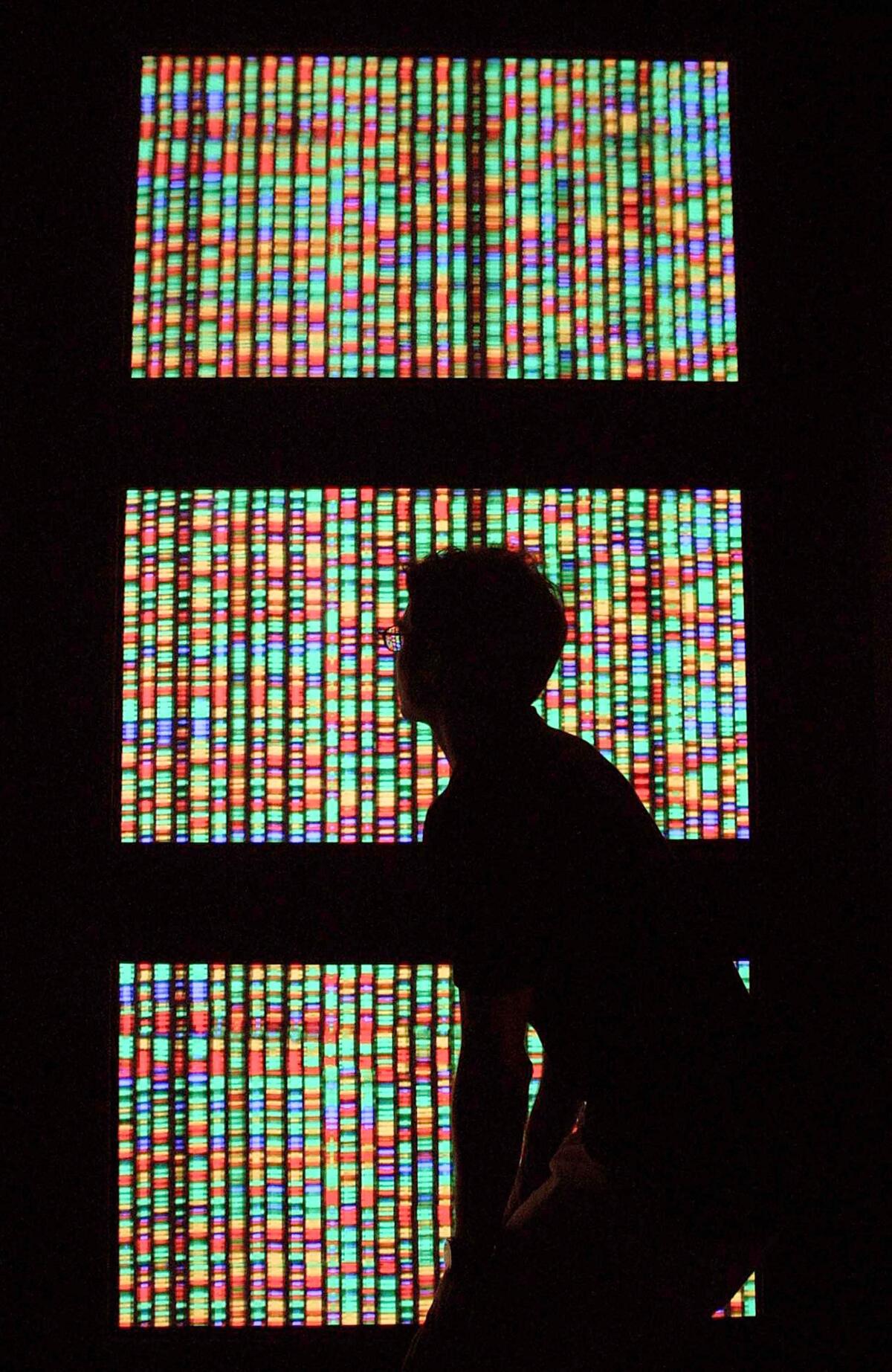How should we do research on human nature?

- Share via
Parenting can make you wonder about human nature. If you have kids, you might have noticed their differences early on. When my infant son first heard music, his eyes grew big, and his gaze got intense. My infant daughter was clearly the people person. At 3 months, she was using her single tooth to mischievously bite me and watch my reaction. No wonder my son became a composer and my daughter turned to psychology.
Were they born this way? Does nature shape who we are? Since the advent of cognitive science, neuroscience and behavioral genetics, this age-old question has become the topic of intense scientific research. But in the current social and political climate, the concern with human nature has become dangerously loaded.
In the past months, a growing choir of popular media has voiced impassioned concerns with the so-called innateness dogma. These critiques question the possibility that females are instinctively maternal, that biological sex (a notion distinct from gender) is binary, and that biology shapes society — as argued by the late E.O. Wilson’s “Sociobiology.” At the root of the anxiety, however, are not the technical scientific merits of these proposals but their social consequences — their potential to elicit harm and perpetuate injustice.
Now these concerns have moved to curbing the scientific process itself. In a recent editorial in the journal Nature Human Behavior — one of the leading scientific outlets — the editors have stated that they may request modifications or, in severe cases, refuse publication of “content that is premised upon the assumption of inherent biological, social or cultural superiority or inferiority of one human group over another.”
The editorial is, no doubt, well intended, and at first blush, reasonable. Indeed, the notion of inherent cultural differences is not only morally objectionable but also conceptually bankrupt. But inherent biological differences — the topic of much active research — is a different matter. In fact, there is evidence that individual differences in IQ and reading and musical skills are heritable. In the eyes of some, however, this research is socially harmful.
Will restricting investigation into the science of human nature effectively prevent harm and cure the social ills that propagate injustice and prejudice?
Talking about human nature is treacherous, so let me clear up some misconceptions. First, when science directly inflicts harm on people, there is no question that science must yield. Second, talk of inborn group differences can inflict harm.
Claims about human nature have been misused to hurt, discriminate and exterminate people — the historic trail is long and ugly. And in the current social and political climate, when minorities are fearful for their rights, life and limb, the potential for harm is heightened. For example, when abortions are curtailed, it is natural for women to fear that talk of “maternal instincts” can be exploited to further limit their reproductive rights.
So, there is no question that harm can occur, and that it should be avoided — that much is uncontroversial. Far less clear, however, is who is the perpetrator: Is it science that inflicts the harm? Can its suppression provide the remedy? The answers aren’t straightforward.
To gain some clarity, let’s put aside the question of inborn psychological characteristics and consider how we feel about the role of genes in shaping our bodies. The popularity of 23andMe is a dead giveaway.
As an Ashkenazi Jew, I may be at an increased risk for having the BRCA mutation associated with breast cancer and the HEXA mutation linked to Tay-Sachs; your genetic ancestry might be different, and so are your physical phenotype and risk factors.
That kind of talk about genetic differences hardly makes us blink. In fact, we are curious to learn that genes shape our bodies. Yet we aren’t oblivious to the potential of these discoveries to elicit harm — they can be certainly exploited to discriminate (e.g., by denying medical coverage by insurance companies). We know that such harms arise not from science but from society, and we can devise the proper legal remedies accordingly.
Why is it, then, that when it comes to our psyche, our attitudes shift radically? Why do people find the mere suggestion that genes shape their personality and cognition so troubling?
Recent findings from my own psychology lab’s research shed light on this mystery. It appears that people wrongly consider the psyche as ethereal, distinct from the body. So, they assume that psychological traits cannot be inborn, coded in our bodies from birth. To anyone operating with that assumption, the notion of inborn psychological differences seems frivolous — it smacks of discrimination. It is no wonder, then, that the very talk of human nature seems offensive.
To further complicate this issue, our psychological intuitions tell us that if we did inherit elements of our personalities or aptitudes from our biological parents, those inheritances would be fixed — part of the very essence that defines who we are. In our eyes, then, the suggestion that people with two X chromosomes inherit a “maternal instinct” implies an uncontrollable female destiny.
But science says no such thing. First, science tells us that our bodies and minds (or psyches) are one and the same; so, the possibility that a woman’s genes shape her personality ought to be no more controversial than acknowledging their role in shaping her body. Second, genes are only one of the many determinants of personality, so if a maternal instinct exists (and for scientists, a maternal instinct is hardly synonymous with the Victorian notion), it by no means implies destiny.
So if to us, the science spells patriarchy, sexism and destiny, our reaction is telling: We’re responding not to what science says but to what we hear.
The idea that genes influence some elements of personality ought to be received as a scientific hypothesis like all others. Like atomic energy and gene editing, the scientific study of human nature is open to exploitation. In many cases, however, these harms arise not from science but from human consumers with their own psychological agendas.
Even if one could prevent such research, those hidden agendas would still be at work in the world. But without science-based answers, society cannot intervene to correct the inequities inflicted by our genetic lottery. Limiting science cannot alleviate our social ills, but it can hamper our ability to understand and address them.
Iris Berent is a professor of psychology at Northeastern University and the author of “The Blind Storyteller: How We Reason About Human Nature.”
More to Read
A cure for the common opinion
Get thought-provoking perspectives with our weekly newsletter.
You may occasionally receive promotional content from the Los Angeles Times.









